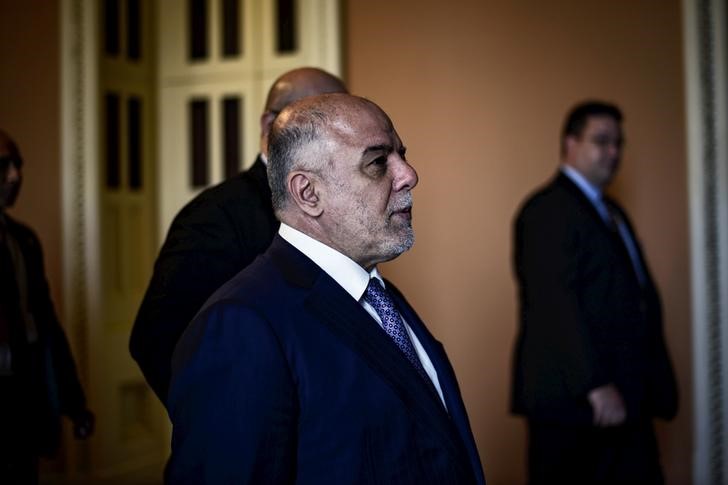By Ahmed Rasheed
BAGHDAD (Reuters) - Iraqi Prime Minister Haider al-Abadi directed military commanders on Sunday to face a court martial for abandoning their positions in Ramadi, as he pushed ahead with a campaign aimed at combating corruption and mismanagement.
Underlining the risks of the ambitious reform agenda, however, the head of parliament's integrity panel, which refers corruption cases to the courts, said his convoy had been targeted west of Baghdad on Saturday evening.
Abadi is seeking to transform a system he says has encouraged graft and incompetence, depriving Iraqis of basic services while undermining government forces in the battle against Islamic State militants.
Critics say sectarian splits and corruption have also weakened the military, allowing the insurgents to control large swathes of territory in the country's north and west over the past year.
Ramadi, the capital of western Anbar province, fell to the
group in May, dampening Baghdad's hopes of quickly routing them following earlier victories in eastern provinces.
The army's collapse a year earlier in the face of Islamic State's takeover of the northern city of Mosul left the Baghdad government dependent on Shi'ite Muslim militias, many funded and assisted by neighbouring Iran, to defend the capital and recapture lost ground.
Baghdad-based analyst Jasim al-Bahadli said Abadi was wise to focus his reforms on the security forces.
"Abadi's decision to refer military commanders to trial is a clear attempt to send a strong message to all other army officers that he will show zero tolerance with any future retreat in the fight against Daesh (Islamic State)," said Bahadli, a former army general and an expert on Shi'ite armed groups.
In a sign of the opposition to Abadi's plans, parliament integrity chief Talal al-Zobaie said his motorcade was attacked on Saturday evening near Abu Ghraib, 24 km (15 miles) west of Baghdad.
Zobaie said a bomb hit a vehicle carrying his bodyguards. Gunmen then fired on the convoy, killing a bodyguard and wounding three others.
"It's understood I was targeted because I'm going after corrupt people," he told Reuters. "This vicious attack will never make me relent in pursuing my job in going after corruption cases."
A separate bomb attack on Sunday killed at least four people and wounded 14 others near a crowded market in the mainly Shi'ite district of Jisr Diyala, southeast of Baghdad.
There was no immediate claim of responsibility, but Islamic State regularly targets areas of the capital populated by Shi'ites, whom it considers heretics.
In a statement circulated online by supporters, the group claimed an attack on Saturday evening in the Shi'ite district of Habibiya that killed at least 15 people.
